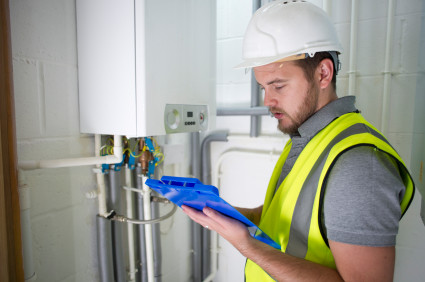
Gas Bond for Contractors & Businesses in Canada
What You Need To Know About The Gas Bond
Within the country of Canada, there are numerous households, which run their appliances on gas. In order for this to happen, a company or technician will need to visit their house and install the appropriate equipment and lines. It is absolutely vital to know that only licensed companies can perform this task legally, within Canada. If a company is caught performing this task, without the necessary license and bond, they could be punished severely. Within this guide, you will learn about the gas bond requirements, so you can get covered before it is too late.
The Requirements
Before moving forward, you should take the time to familiarize yourself with the requirements of the gas bond and licensing. No employer within the country is able to perform any gas installation or install any gas equipment, without holding a valid employer’s license. Of course, the employer isn’t the only one, who will need to obtain this bond. Below, you’ll find a list of others that will need to do so.
- Contractors

- Employers
- Single individuals, who desire to install gas services and equipment, if they work for the public and within their client’s owned premises
It is safe to say that anyone, who wishes to work with gas, gas equipment or gas installation, will most likely need to acquire the bond, before they’ll be able to do so.
Bond Amount Requirement
Although the specific requirements tend to deviate from one province to the next, the majority actually requires a $10,000 bond. This is true within British Columbia. This is the specific amount, which was originally set forth by the BC Safety Standard Act.
What It Does
There is a reason for the gas bond and it is not to obtain money from the gas technician or company. The gas bond is a requirement, because it helps to protect the public at large. Remember that this type of bond is a three-party arrangement, which requires the technician to perform the duty, as initially agreed upon. On the other hand, the project owner or client, who will be designated as the obligee, is the one that is protected by the bond. If you fail to fulfill your duties in a satisfactory manner and within a reasonable time frame, the client can contact the surety company and file a claim.
The surety will then carry out an investigation and will eventually make a ruling. If they rule in favor of the client, the bond amount will be forfeited and will be given to the client, as reimbursement for losses or damages.
Applying For A Gas Bond
If you are going to be applying for a gas bond, there are several different things that you need to know. To start off, this should be a fairly simple process, but it can be lengthy. You are going to  have to find a good surety company that will issue the bond. Finding a surety company should not be a problem, but finding a good one might take a bit more work. Just make sure that you do some research before you jump into a contract with a company you know nothing about.
have to find a good surety company that will issue the bond. Finding a surety company should not be a problem, but finding a good one might take a bit more work. Just make sure that you do some research before you jump into a contract with a company you know nothing about.
After you have a surety company picked out, you will be required to fill out an application, go through background checks, and even credit checks. If everything checks out good, you will be given a quote for the bond. Just simply pay the payment in full and you should be good to go. The whole process might not seem like a lot, but it can take a lot of time to complete. In fact, it is wise to remain patient and double check your details, so you can guarantee all submitted information is valid and accurate! This will help to prevent further delays.
Computing Premiums
Computing gas bond premiums is generally the same as any other surety bond. The annual premium will be based on the full amount of the bond and the individual’s credit scores. If the individual has a poor credit rating, they very well may have to pay a much higher premium. Of course, it is never that easy to calculate the actual bond premium, since this will vary from one Surety Company to another. If you are offered a high percentage rate from one surety, you will always have the option of searching around for a lower option.
Getting Licensed
If you wish to get licensed, you’ll first need to acquire the bond. Once you’ve managed to achieve this feat, you will want to explore the other requirements. First and foremost, you will need to obtain a gas fitter’s certificate. There are a few different certificates, but the most common will be explained below.
- Class A – Utilized for installation and manipulation of gas systems. This classification has no loads or limits.
- Class B – Utilized for the same purpose, but comes with some limits, which are set forth in the Gas Safety Regulation Act.
Remember that a comprehensive examine will need to be passed, in order to acquire your certificate. Once you’ve finished this step, you will want to obtain the Gas Contractor License Application  Form. When filling out and submitting this form, you will also need to provide the Gas Bond and the application fee. The fee depends on your specific province, but it is typically under $200.
Form. When filling out and submitting this form, you will also need to provide the Gas Bond and the application fee. The fee depends on your specific province, but it is typically under $200.
Finally, you need to remember that your license doesn’t last forever. This is also true with your bond. Typically, you’ll receive a renewal notice in the mail around the time that your license is set to expire. You can submit the same details and documents above to renew your license. Just remember to keep your bond up to date, as well.
Getting Bonded Right Now!
When it comes down to it, gas contractors and fitters can make a good income, within the country of Canada. If you’re ready to revamp your life and get your gas contractor’s license, you’ll first need to get bonded. We can help. Just fill out the associated application and you’ll receive a quote promptly! Remember that there is no obligation required.
Other types of license bonds that we offer:
- Alcohol Bond – Protects the government in the event tax and fees are not paid by businesses.
- Auctioneer Bond – Protects the customer against misrepresented auctioned items.
- Bailiff Bond – Required by a bailiff before employment begins and protects victims of misconduct.
- Collection Agency Bond – Guarantees ethical use of sensitive client information by agencies.
- Consumer Protection Bond – Protects clients from unauthorized use of their information.
- Direct Sellers Bond – Protects the customer that incurs damages as a result of a direct seller.
- Debt Repayment Bond – Protects customers from fraud or misconduct by debt repayment agencies
- Freight Broker Bond – Required by freight brokers before they can accept any orders.
- Home Inspector Bond – Required by home inspectors before conducting inspections.
- Insurance Adjuster Bond – Required by independent insurance adjusters before working.
- Immigration License Bond – Required by immigration consultants before beginning work.
- Livestock Dealer Bond – Required by dealers before buying, selling, and bidding on livestock.
- Mortgage Broker Bond – Ensurers that agents are compliant with provincial regulations and acts.
- Payday Lender Bond – Protects customers from fraud or wrong doings by payday lenders.
- Private Investigator Bond – Required by investigators & employees of the agency before working.
- Real Estate Broker Bond – May be required by realtors along with licensing.
- Telemarketing Bond – Protects customers from frauds and misconduct by telemarketers.
- Travel Agency Bond – Required by travel agencies before working with the public.